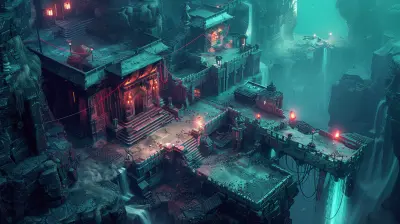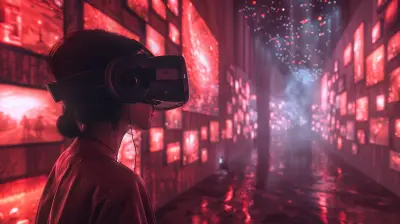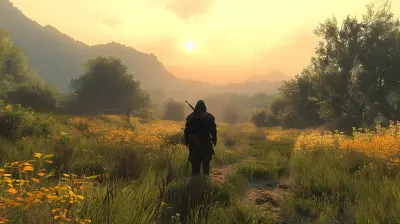The Future of Open World Games: What’s Next in Expansive Gaming?
22 April 2025
Open-world games have come a long, long way, haven’t they? It feels like just yesterday we were marveling at the sprawling environments of The Elder Scrolls III: Morrowind or exploring the vast countryside in Grand Theft Auto: San Andreas. Fast-forward to today, and we’ve got jaw-dropping worlds like The Witcher 3, Red Dead Redemption 2, and Cyberpunk 2077.
But as incredible as these experiences are, it begs the question: what’s next? What’s left to innovate in the open-world genre? That’s exactly what we’ll dive into today—what the future holds for expansive, immersive gaming worlds. From advancements in technology to fresh storytelling approaches, let’s take a peek into how open-world games might evolve.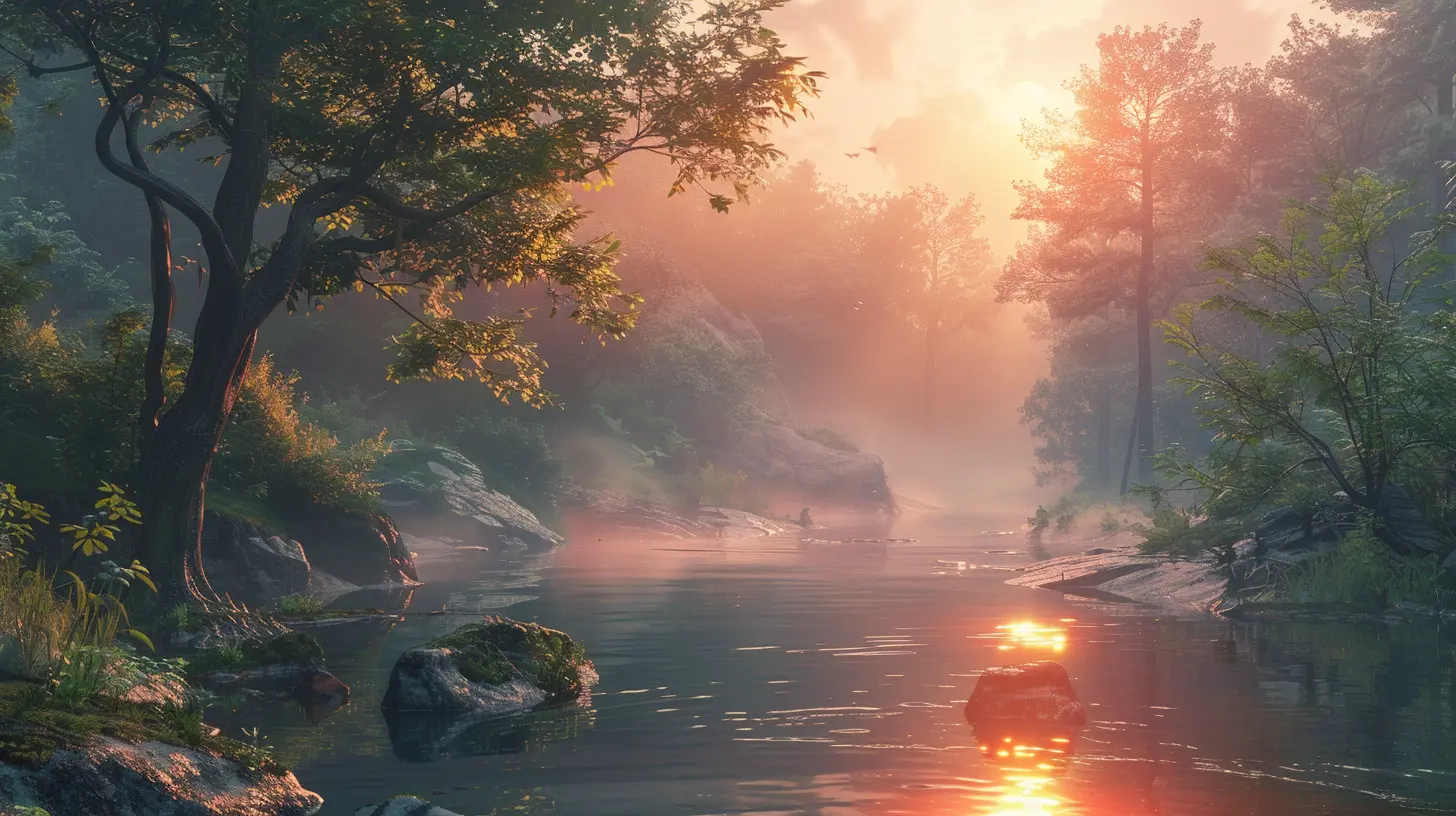
More Than Just Bigger Maps: Depth Over Breadth
First off, let’s talk about the elephant in the room: map size. Some developers seem to measure success by how gigantic their maps are. Don’t get me wrong—who doesn’t love a massive world to run around in? But here’s the thing: bigger doesn’t always mean better.Take No Man’s Sky, for instance. It has a universe so vast that you’ll probably never visit every planet in your lifetime. Cool, right? But at launch, many players felt the game lacked depth, as the planets felt repetitive and lifeless. It’s proof that size alone can’t carry a game.
Moving forward, I think we’ll see a shift toward creating denser, more alive worlds. Imagine a city in an open-world game where every single NPC has their own routine, backstory, and dynamic behavior. A world where a bustling market feels as alive as a real one, packed with characters who react differently depending on your choices. Think less "wide as an ocean, shallow as a puddle" and more "tightly packed, yet rich and deep."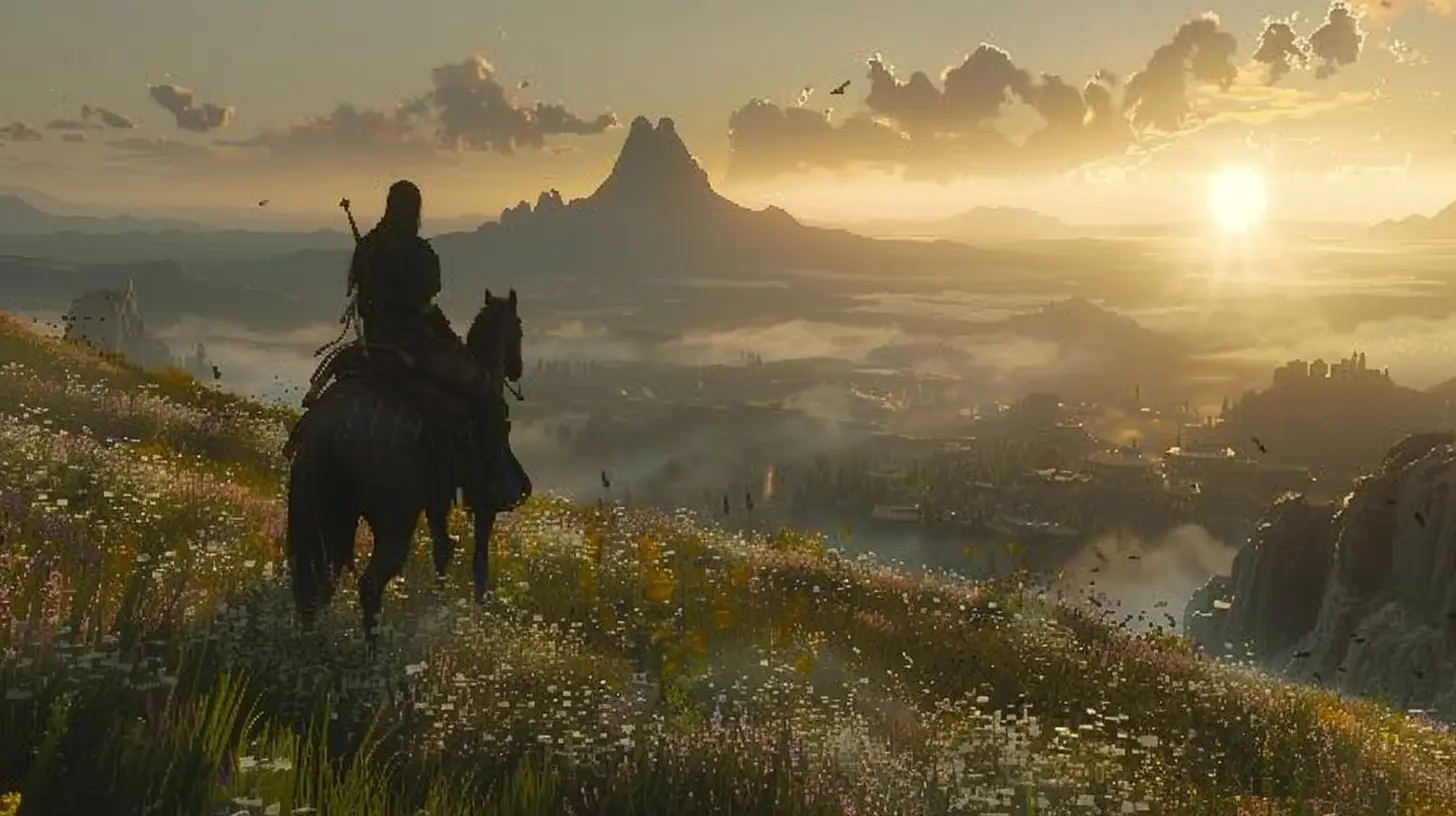
The Age of Procedural Storytelling
Speaking of choices—how often do you replay your favorite open-world games? Probably not as often as you’d think. Why? Because even though these games are technically “open,” the storylines are still pretty linear. Sure, you can tackle quests in a different order, but the core narrative doesn’t change much, does it?The solution to this? Procedural storytelling. This is where things get exciting. Imagine playing an open-world RPG, and the story changes dynamically based on every decision you make. Not just minor tweaks, like some NPC remembering you stole their cheese, but major branching narratives. Your choices could impact factions, economies, relationships, or even reshape the world itself.
For example, say you accidentally burn down a village during a quest. In the current state of gaming, that might lead to a slap on the wrist or a quick scolding from an NPC. But in the future? That village might rebuild over time—or maybe it won’t, and its absence scars the region permanently. Every action would ripple outward, making each playthrough genuinely unique. In a way, it’d feel like the game was alive, adapting to your every move.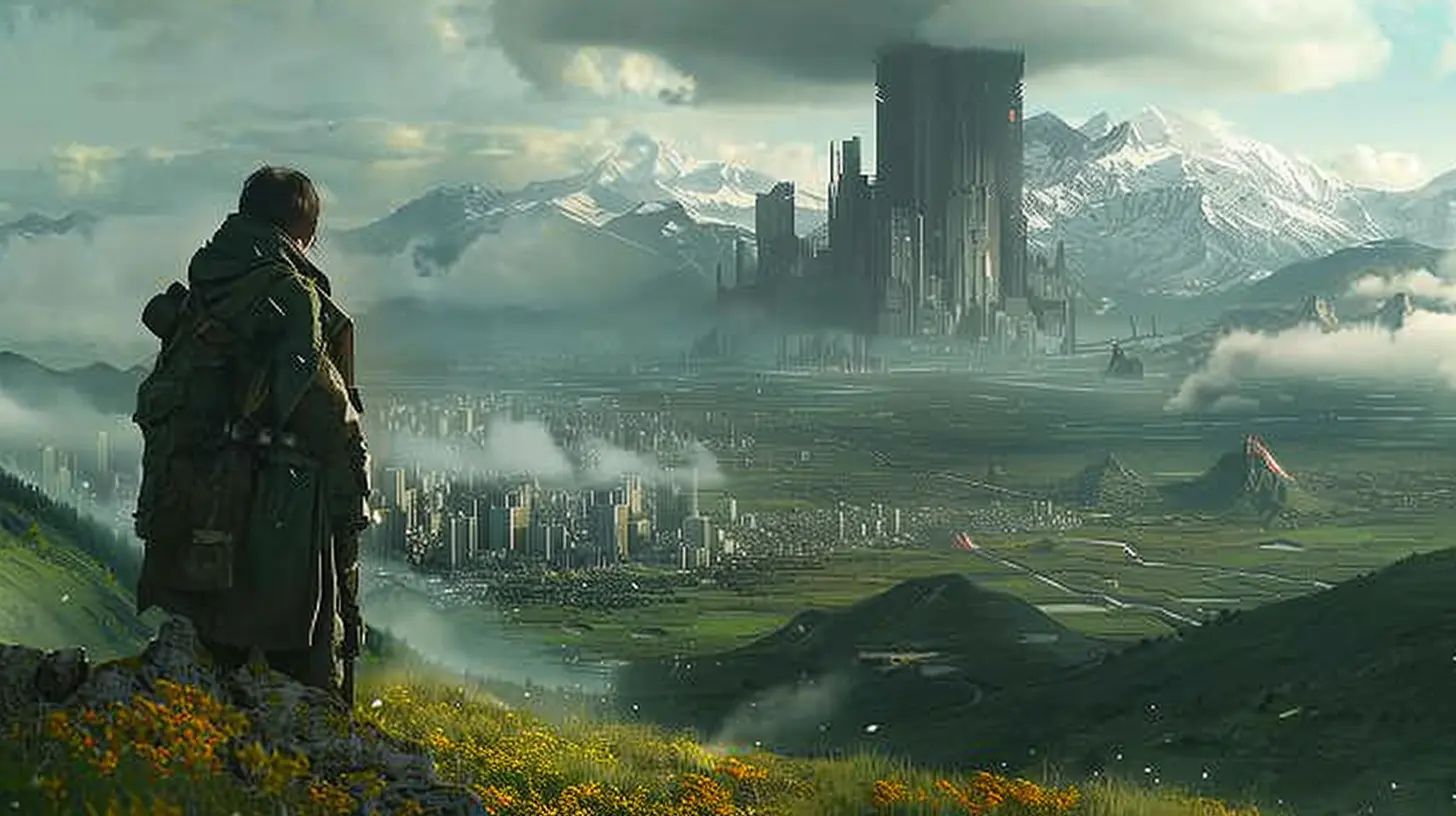
AI-Powered Characters: Say Goodbye to Static NPCs
Now, let me ask you this: how many times have you laughed at a clueless NPC? You know, the ones who keep walking into walls or repeat the same canned line every ten seconds. It’s funny at first, but it breaks immersion, doesn’t it? That’s where AI-powered NPCs come in.Thanks to advancements in machine learning, NPCs in future open-world games will feel more human. Picture this: you’re in a tavern in some sprawling fantasy RPG. You strike up a conversation with a random bartender, expecting the usual scripted dialogue. Instead, they respond contextually, referencing your previous quests, your current equipment, or even rumors they’ve "heard" about you. They might even have their own goals, alliances, and evolving personalities.
Imagine what that would do for immersion. Whether you’re chatting with peasants in a medieval kingdom or space traders on a distant planet, it’d feel like you’re actually talking to people. And let’s not even get started on how AI could revolutionize enemy behavior. No more bandits rushing to their doom—they’ll think, strategize, and adapt.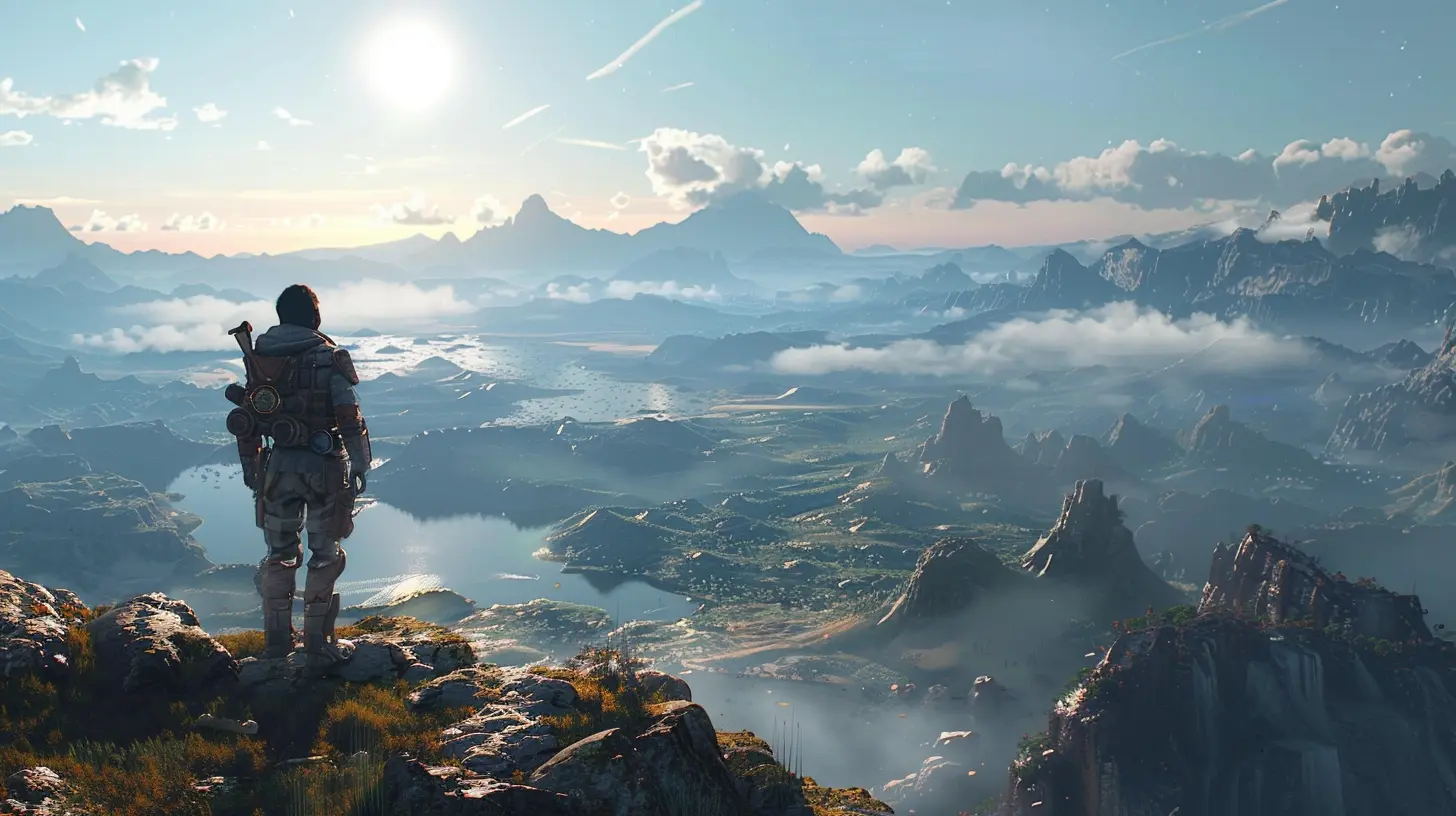
Seamless Multiplayer Worlds
Alright, let’s switch gears for a second. One of the coolest trends in gaming right now is the blending of single-player and multiplayer experiences. But let’s face it, most open-world multiplayer games (cough Fallout 76 cough) feel a bit… clunky. What if we could merge these two systems seamlessly?Imagine playing an open-world game where you can explore solo or run into other players naturally, just like in real life. You could stumble across someone hunting a legendary beast or rebuilding a dilapidated city. Interactions wouldn’t feel tacked on, but part of the world itself. Think Elden Ring, but with a more persistent, shared environment.
We’re already seeing hints of this in games like Death Stranding, where player contributions (like building roads or bridges) are left behind for others to use. But future games might take it to the next level, creating massive, dynamic worlds shared by millions of players. It’s a big ask, but we’re getting closer every day.
VR and AR: A New Dimension of Immersion
Let’s talk tech for a second. If we’re looking at the future of open-world games, we can’t ignore the potential of virtual reality (VR) and augmented reality (AR). Honestly, these technologies are the perfect match for expansive gaming worlds.Picture this: you strap on your VR headset, and suddenly you’re standing in the middle of a dense jungle, hearing the rustling of leaves and feeling the sense of scale in a way a flat screen just can’t capture. Or with AR, imagine your real-world environment blending with a digital one—say, fighting off zombies in your living room or discovering buried treasure in your backyard.
Of course, there are still hurdles to overcome, like hardware accessibility and motion sickness. But as tech improves, VR and AR could redefine how we experience open worlds entirely. It wouldn’t just be a game; it’d be like stepping into another universe.
Sustainability and Ethical Game Development
Here’s something we don’t talk about enough: how do massive open worlds affect our planet? Crazy as it sounds, creating these games takes a huge amount of time, resources, and energy. Not to mention the toll it takes on developers, who often endure grueling crunch periods to meet deadlines.The future needs to address these issues. Developers may start adopting greener practices, like optimizing game engines to use less energy during development or finding ways to reuse assets from previous games. Additionally, more studios are pushing back against toxic work cultures, ensuring that the creative people behind these worlds aren’t burning out. After all, how can we enjoy fantastical realms if they come at the cost of real-world well-being?
The Role of Player Feedback
If there’s one constant in gaming, it’s that players always have opinions—a lot of opinions. And honestly? That’s a good thing. Studios are becoming more open to involving the gaming community in development. Games like Baldur’s Gate 3 used early access to refine their mechanics and storylines based on player input, and the results? Phenomenal.The future of open-world games will likely lean even harder into this collaborative approach. Imagine being able to vote on which regions of the map should expand in DLCs or suggesting new features that actually influence the final product. With the right balance, this collaborative process could lead to richer, more player-centric worlds.
Wrapping It Up
So, what’s next for open-world games? Honestly, the possibilities are endless—and that’s what makes it so exciting. We’re talking deeper, more reactive worlds, dynamic storytelling, lifelike NPCs, hyper-immersive VR experiences, and even ethical development practices that prioritize sustainability.Open-world games aren’t just about giving us a sandbox to play in anymore. They’re about creating living, breathing universes that feel personal and unique to every player. Whether you’re an adventurer, a builder, or just someone who loves getting lost in a beautiful landscape, the future is looking brighter than ever.
And who knows? In a few years, we might look back on today’s open-world games the same way we look at Skyrim or San Andreas now—with awe, nostalgia, and a little grin at how far we’ve come.
all images in this post were generated using AI tools
Category:
Open World GamesAuthor:

Leif Coleman
Discussion
rate this article
6 comments
Presley Nelson
In vast realms yet to unfold, Dreamscapes whisper tales untold. Boundless adventures await us all— Open worlds, where wonders enthrall.
May 7, 2025 at 4:44 AM

Leif Coleman
Thank you for capturing the essence of open-world gaming! The future promises even more immersive experiences and limitless adventures. Exciting times ahead!
Bria Stone
Ah, the future of open world games! I can't wait to roam endless landscapes, chat with quirky NPCs, and probably get lost for hours chasing a butterfly. Let’s just hope they don’t add a GPS feature—exploration is all about getting hilariously sidetracked, right? 🌍🎮
May 5, 2025 at 3:19 PM

Leif Coleman
Absolutely! The thrill of exploration and unexpected adventures is what makes open world games so enchanting. Here’s to embracing the joy of getting sidetracked! 🌿✨
Paula Bellamy
Exciting possibilities ahead! I'd love to see more dynamic environments and player-driven narratives.
May 3, 2025 at 2:38 PM

Leif Coleman
Absolutely! Dynamic environments and player-driven narratives are key to enhancing immersion and engagement in open-world games. Exciting times ahead!
Orionyx Hahn
More narrative depth, less empty exploration.
April 30, 2025 at 3:02 AM

Leif Coleman
Thank you for your feedback! Balancing narrative depth with exploration is crucial, and I agree that a richer story can enhance the open-world experience.
Colette Hayes
The future of open-world games lies in deeper interactivity and dynamic environments, where player choices reshape narratives, fostering unique experiences that evolve beyond mere exploration.
April 29, 2025 at 4:04 AM

Leif Coleman
Absolutely! Deeper interactivity and dynamic environments are essential for creating truly immersive experiences that respond to player choices, shaping narratives in innovative ways.
Uma Sawyer
Excited to see where open world gaming goes next!
April 28, 2025 at 3:06 PM

Leif Coleman
Thank you! The future is full of possibilities, and we can’t wait to explore new horizons in open world gaming!
